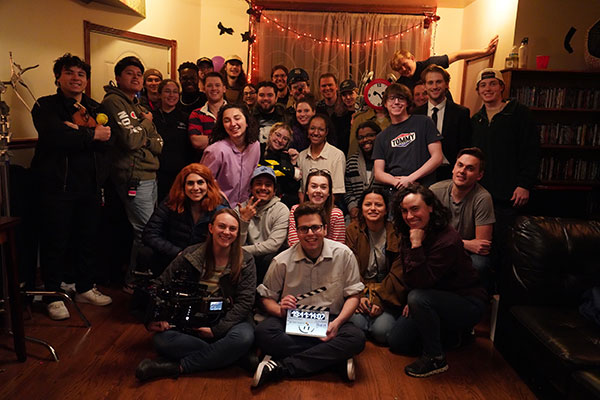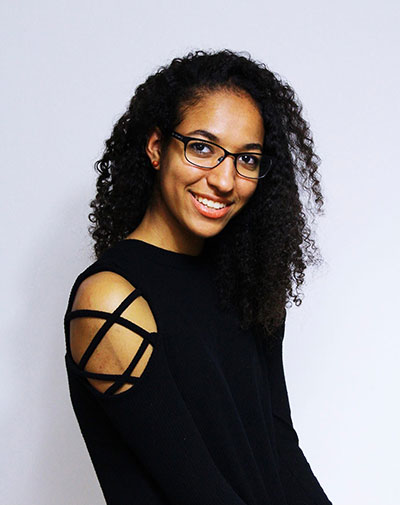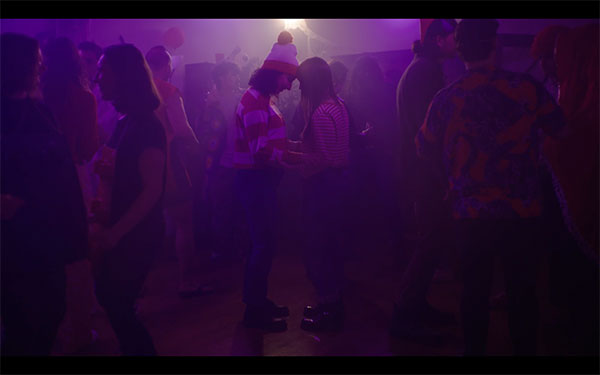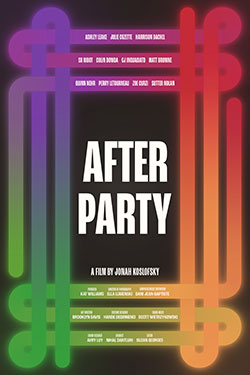Recent MACS alum reflects on film production ahead of Ebert Center screening

After Party, a short film produced by alum Kat Williams (BS ’22, media and cinema studies), will be featured on Thursday, April 4, at the Knight Auditorium of Spurlock Museum, as part of the screening series presented by the Roger Ebert Center for Film Studies. This year’s Ebert Fellows, who curated the evening’s films, chose the 20-minute short to be shown before the main film screening of Portrait of a Lady on Fire.
Williams worked as producer for After Party in her first major project since graduating in 2022. Based in Chicago, Williams has held various production assistant roles in the independent movie scene.
In a recent interview, Williams described the making of the film and what her time at the University of Illinois taught her about filmmaking. Director Jonah Koslofsky also shared insights on Williams’ impact on After Party and what he hopes viewers will take away from the film.
 What is After Party about?
What is After Party about?
Kat Williams: After Party is a short film about a group of college friends who haven't seen each other in a while, coming back together post-COVID when we all started hanging out again outdoors. It looks at the changes in their relationships, their dynamics, and how they figure those out and move forward. It's about connection. It's about people. It's about shenanigans.
What was the filmmaking process like?
Williams: I first met with director Jonah Koslofsky about this project in October of 2022 and then we started shooting in April of 2023. It was one week of production—we shot for five days. Before that, it was a lot of coordinating, ordering things, finding our location, finding our crew, stuff like that. Then we shot for a week and spent the next several months going through editing, color, sound, and music. This was my first time producing a project front-to-back like that, so it was very fun for me to really explore that and find out what this job is like.
In your role as producer, what did you do for this film specifically?
Williams: A producer really oversees the project from start to end. A lot of people, when they think of film production, think of just the days that you're on set. But there's so much more on the front end and on the back end of that. In the year that we spent working on this project, we were only on set for a week. As a producer, what I do on a day-to-day basis is start with doing a breakdown. You take the script and figure out what you need and then you have to figure out where to get things, and how much it's going to cost. You start talking to potential crew members, people that you would trust to help you take this from page to screen. Things just kind of fall together. If you get the right people together, you can make anything happen and we were really lucky to have had a good group.
What did Kat Williams bring to the project?
Jonah Koslofsky: She provided essential feedback and encouragement as I was writing the script. Once the writing was complete, she organized and constructed the budget for the project, and then she and I coordinated the crowdfunding of said budget. She set up our Backstage page and provided valuable input throughout the casting process. She helped assemble our incredible crew and communicated with our entire team so that our shoot was able to come together. Then she found our editor, post-sound editor, and composer so that our post-production could be completed in a timely manner, and now, she's devising our festival strategy and building our website and press materials.
This is by no means an exhaustive list of things Kat brought to the project, but more than anything else, she was a support for me and the whole movie when things became particularly stressful or uncertain. Whenever I found myself close to an edge, Kat was able to pull me back to stable ground and towards actually solving the problem. She always believed in the project, and worked day after day to make sure it did not fall apart. After Party would not exist without her.

What do you hope students take away from the film?
Koslofsky: I hope students enjoy the film! I hope that they are able to see themselves in the ensemble; I hope students recognize the experience of re-entering the world as the pandemic ended and finding oneself increasingly confused. I hope that they read into the film and draw their own conclusions—we were very particular with where certain shots start and end, how certain characters reflect each other. And I hope they laugh at the jokes.
 How do you feel about something that you worked on being screened in Champaign-Urbana?
How do you feel about something that you worked on being screened in Champaign-Urbana?
Williams: I'm so excited. I learned so much about what I do at the University of Illinois. It means a lot to me to get to share this with the campus community and to have the Ebert Fellows sharing this with Portrait of a Lady on Fire, which is one of my favorite movies and also a huge inspiration for the film. It means a lot to have this all coming together like this.
Koslofsky: Screening in Urbana is a huge honor. I love Champaign-Urbana, and I'm so excited to bring the film to the audience here. While the film is set in Chicago, it's packed with Urbana DNA—in addition to Williams and myself, our director of photography Ella Lubienski is also an Urbana native. It's a movie made by Urbana people, so it really makes sense to show it to Urbana people.
Are there any particular classes or experiences at the College of Media that helped you for this role?
Williams: I took MACS 100 with Dr. Amanda Ciafone, and realized I'm supposed to be studying movies and making them. That changed everything for me. I really loved all those MACS classes, and all of the professors were fantastic. Victor Font was also a huge help with teaching theory, and learning how to apply that on set, learning what all these positions are, what all the equipment is, and how to function on a set. I was also able to get a minor in critical film production, a minor in creative writing, and I got a certificate in international global studies. All of that has really come together in a way that I'm having a lot of fun with now and I get to use those skills all the time, which is exciting.
What advice do you have for MACS and College of Media students?
Williams: I think the biggest thing is just talking to people—find your people, use your network, make friends. And just have fun with it. Because for me, the whole reason that I started doing this was because I wanted work to be fun and I wanted to enjoy what I'm doing and have something beautiful at the end of it that I can show people.
—Vivian La, Communications Intern
